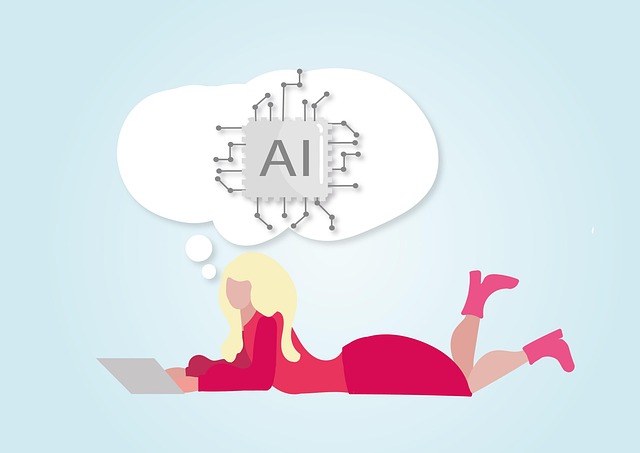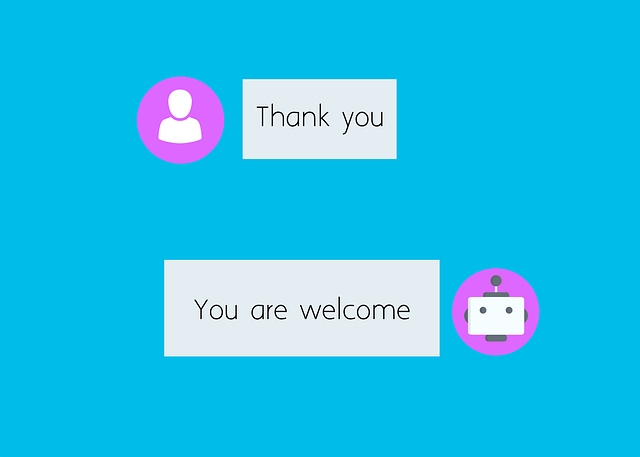AI chatbots are transforming e-commerce by offering 24/7 support, personalized product recommendations, and instant responses through NLP and machine learning. They automate routine queries, improve customer satisfaction, and drive conversions by engaging in human-like conversations. Integrating AI chatbots with e-commerce platforms provides a competitive edge, enhances operational efficiency, and boosts sales through targeted marketing based on collected customer data. Best practices include tailored training, seamless integration across touchpoints, and continuous updates based on user feedback.
“Unleash the power of AI chatbots to transform your ecommerce game! This comprehensive guide explores the potential of these intelligent assistants in revolutionizing customer engagement. From enhancing support to personalizing shopping experiences, AI chatbots are a game-changer. We delve into their benefits, offering insights on how they can drive sales and improve satisfaction. Discover the various free AI chatbot options available, and master the implementation process step by step. Optimize your ecommerce platform with best practices tailored for these advanced tools.”
- Understanding AI Chatbots and Their Impact on Ecommerce
- Benefits of Integrating AI Chatbots into Your Ecommerce Platform
- Types of AI Chatbots Available for Free Use
- Implementing an AI Chatbot: A Step-by-Step Guide
- Best Practices for Optimizing Your Ecommerce AI Chatbot Experience
Understanding AI Chatbots and Their Impact on Ecommerce

AI chatbots are transforming the way businesses interact with their customers, particularly in the realm of e-commerce. These intelligent virtual assistants leverage advanced natural language processing (NLP) and machine learning algorithms to engage in human-like conversations, providing instant support and personalized recommendations to shoppers. An ai chatbot for ecommerce can handle a range of tasks, from answering product queries and offering tailored suggestions based on browsing history to guiding customers through the checkout process, thus enhancing user experience and driving conversions.
The impact of AI chatbots on e-commerce is significant. They offer 24/7 availability, instant responses, and personalized interactions, which can significantly improve customer satisfaction and loyalty. By automating routine inquiries and providing quick resolutions, these chatbots free up human agents to handle more complex issues, optimizing operational efficiency. Moreover, AI chatbots collect valuable customer data that can be used for targeted marketing campaigns, further boosting sales and revenue.
Benefits of Integrating AI Chatbots into Your Ecommerce Platform

Integrating an AI chatbot into your e-commerce platform can significantly enhance user experience and drive sales growth. These intelligent assistants offer 24/7 customer support, providing instant answers to frequently asked questions about products, shipping, and returns, which improves client satisfaction and reduces response times for inquiries. By handling basic queries efficiently, human agents are freed up to focus on more complex issues, ensuring a faster resolution for urgent matters.
Moreover, AI chatbots can personalize the shopping experience by offering product recommendations tailored to individual preferences. Using natural language processing, they engage in conversations with customers, understanding their needs and suggesting relevant items. This level of interaction increases customer loyalty and encourages repeat purchases, as users feel valued and understood. In today’s competitive e-commerce landscape, leveraging an ai chatbot for ecommerce can be a game-changer, setting your platform apart while optimizing operational efficiency.
Types of AI Chatbots Available for Free Use

In today’s digital era, AI chatbots have become a game-changer across various industries, including ecommerce. Among the many options available, there are several types of AI chatbots that businesses can leverage for free use. Open-source AI chatbot platforms offer developers and entrepreneurs access to powerful tools like Dialogflow and Rasa, which enable them to create customized conversational agents without incurring costs. These platforms often provide pre-trained models and extensive libraries of natural language processing capabilities, making it easier to integrate a chatbot into an ecommerce website or application.
For businesses specifically focusing on ecommerce, free AI chatbots can significantly enhance customer experience and support. They can handle basic queries, product recommendations, order status updates, and even assist in simple returns or exchanges. By implementing these chatbots, ecommerce platforms can reduce response times, improve customer satisfaction, and allow human agents to focus on more complex issues. This not only enhances operational efficiency but also provides a competitive edge by offering 24/7 customer support.
Implementing an AI Chatbot: A Step-by-Step Guide

Implementing an AI Chatbot for Ecommerce: A Simple Breakdown
The first step in bringing an AI chatbot to your ecommerce platform is identifying its purpose. Whether it’s handling customer inquiries, offering product recommendations, or even processing basic transactions, defining roles ensures efficient integration. Next, choose a suitable AI chatbot platform that aligns with your business needs and technical capabilities. Many options are available, from user-friendly drag-and-drop interfaces to customizable code solutions.
Once selected, design conversation flows to guide the chatbot’s interactions. Start with common customer queries and map out responses, branching for more complex scenarios. Integrate the chatbot into your existing ecommerce system, ensuring seamless data exchange between the chatbot and your inventory, order management, or customer relationship management (CRM) tools. Test thoroughly, gathering user feedback to refine and improve the overall experience.
Best Practices for Optimizing Your Ecommerce AI Chatbot Experience

Implementing an AI chatbot for your ecommerce platform can significantly enhance customer engagement and sales, but it’s crucial to follow best practices to optimize this experience. Firstly, ensure the chatbot is trained on relevant data specific to your industry and target audience to provide accurate and contextually appropriate responses. Personalization is key; tailor interactions based on user behavior, purchase history, or browsing patterns to offer a unique shopping journey.
Secondly, integrate the chatbot seamlessly across various touchpoints, such as website, social media, and messaging apps. Enable users to switch between channels without losing context, creating a fluid and intuitive experience. Regularly monitor and update chatbot responses, incorporating feedback from both customers and your team, to continuously improve its performance and address any emerging queries or pain points.
AI chatbots have emerged as a powerful tool, revolutionizing the way businesses interact with their customers. As we’ve explored, integrating an AI chatbot into your ecommerce platform offers numerous benefits, from enhanced customer service to increased sales conversions. With various free options available, implementing these intelligent assistants is more accessible than ever. By following best practices and a step-by-step guide, you can unlock the full potential of AI chatbots for ecommerce, providing an optimized and engaging experience for your online customers.
